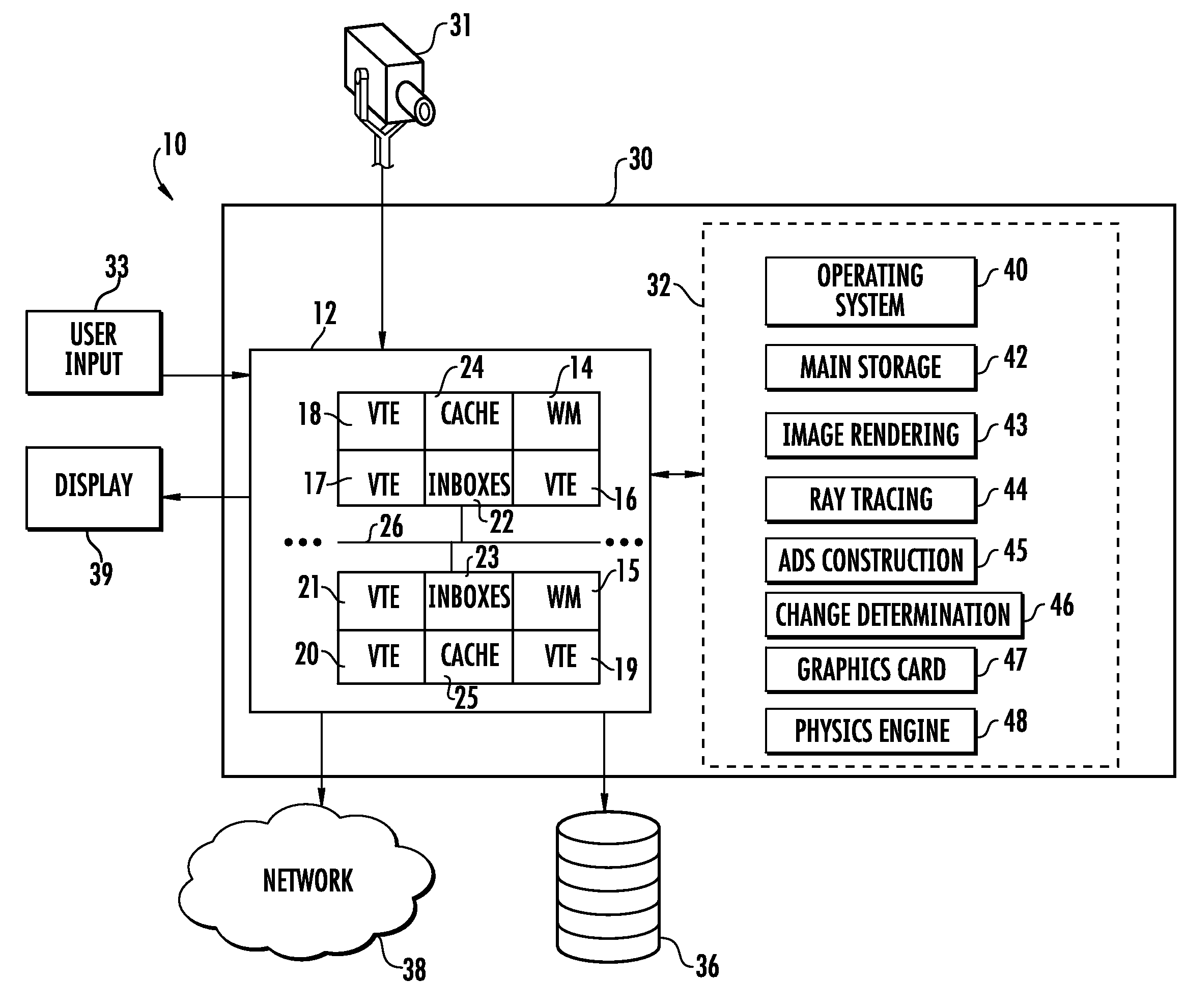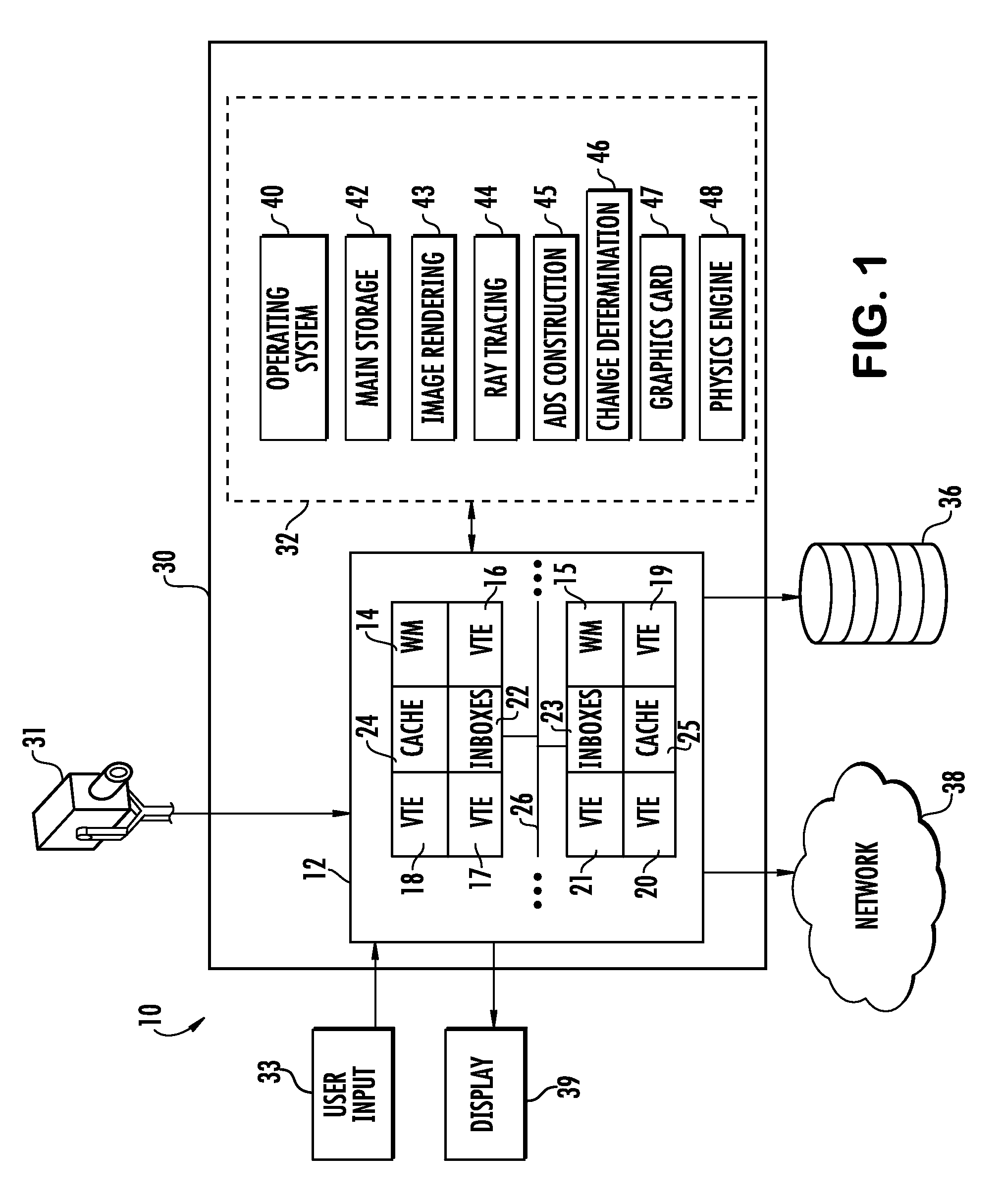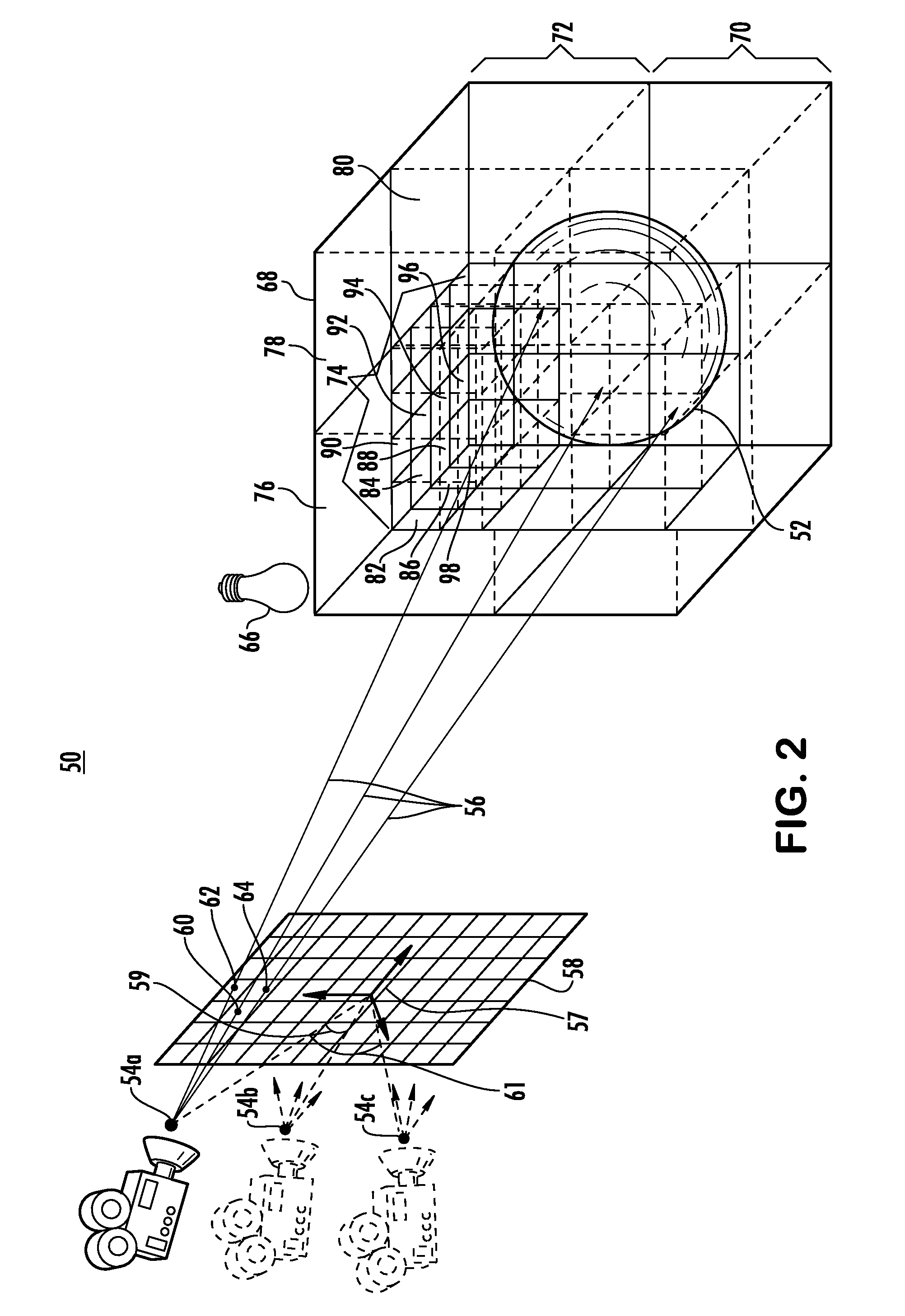Updating Ray Traced Acceleration Data Structures Between Frames Based on Changing Perspective
a technology of acceleration data and frame, applied in the field of image processing, can solve the problems that the processing process may generally reduce the visual acuity of the rendered image, and achieve the effect of reducing the amount of processing resources used, reducing the visual acuity of the rendered image, and reducing the processing requirements
- Summary
- Abstract
- Description
- Claims
- Application Information
AI Technical Summary
Benefits of technology
Problems solved by technology
Method used
Image
Examples
Embodiment Construction
[0024]Embodiments consistent with the principles of the present invention may provide image rendering in a manner that reduces computational requirements based on the change in perspective between frames. The computational requirement of a ray tracing operation may be reduced in response to a rapid change in the vantage point. Aspects may capitalize on a recognition of a relatively fast rate of change by exchanging visual acuity for saved processing power and other resources.
[0025]Embodiments may include a ray tracing operation where an ADS is updated in between frames in response to a changing vantage point. Aspects of the invention may adjust the quality level of tree building in response to rapid changes in the “look at” of the user. Embodiments may have particular application where graphics-only scene data trees are employed. Alternatively or additionally, ADS building cycles may be skipped. All or some of the ADS may be built in intervals, e.g., after a preset number of frames....
PUM
 Login to View More
Login to View More Abstract
Description
Claims
Application Information
 Login to View More
Login to View More - R&D
- Intellectual Property
- Life Sciences
- Materials
- Tech Scout
- Unparalleled Data Quality
- Higher Quality Content
- 60% Fewer Hallucinations
Browse by: Latest US Patents, China's latest patents, Technical Efficacy Thesaurus, Application Domain, Technology Topic, Popular Technical Reports.
© 2025 PatSnap. All rights reserved.Legal|Privacy policy|Modern Slavery Act Transparency Statement|Sitemap|About US| Contact US: help@patsnap.com



